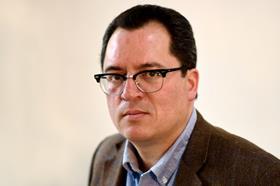We seem to die rather hard on my side of our family. No unexpected heart attacks. Instead, there is terminal cancer or dementia to take my people up the line to death. And in their drawn-out closing stages, these are hard deaths to be around. That’s not through a lack of character on my part, I hope, but because a deep knowledge of the person suffering lights an empathetic knowledge of their own considerations of dignity and a pain that is not only physical.

Countless Gazette readers have such experiences – leading many, like me, to listen with an open mind to the arguments for assisted dying made by people who fear or do not want to countenance certain features of their own end. Now a private member’s bill introduced by Kim Leadbeater MP stands the strongest chance yet of effecting a change in the law on assisted dying.
Read the Gazette's feature on the private member’s bill in today's edition
But there is much in the debate that frustrates. Leadbeater’s Terminally Ill Adults (End of Life) Bill would not cover numerous scenarios that prompt the interest of many in hearing her case. It is narrowly drafted, failing to cover important financial forfeiture matters that private client lawyers hoped it would. For its ‘safeguards’, it places a rather prim, old-fashioned faith in the wisdom of doctors and judges, whereas a multidisciplinary approach and oversight might work better. A person’s ‘capacity’ can change day to day, yet the snapshot relied upon in the bill’s process is a rigid assessment.
For their part, opponents of the bill raise objections that have no connection to the proposed legislation’s content. No provision relates to physician-administered dying, which Lord Mance describes as ‘crossing a line… euthanasia’. Neither a mental health condition nor a long-term disability are in scope. Both are explicitly excluded. The ‘slippery slope’ of Canada’s law, which has seen its definition of ‘unbearable suffering’ widened, has its roots in the Supreme Court case on which subsequent legislation was based.
To weigh issues of safety is also to engage considerations of risk. David Lock KC, a former member of the BMA’s ethics committee, references the ‘clash between autonomy and duty of care’. As we live our lives, he notes, ‘autonomy’ tends to win, even where risk is present. ‘Why should it be different when it comes to ending a life?’ he asks. ‘I’ve never had a particularly satisfactory answer.’






























3 Readers' comments